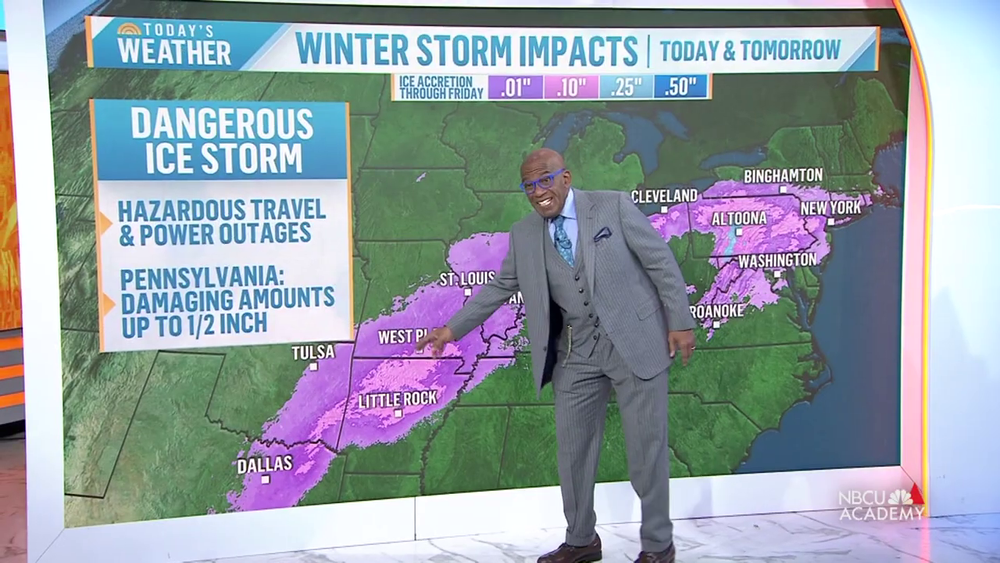“TODAY” co-host Al Roker has been delivering weather news for over four decades, but he couldn’t do it without his elite Climate Unit, a nine-member team that includes meteorologists and producers who use cutting-edge technology to report on weather and climate stories.
Watch the video above or read some of their remarks below. The text has been lightly edited for brevity and clarity.
The Life of a climate producer
Kathryn Provic: As meteorologists, our world is all data and tech. We break it down in our own way and then make our forecasts based on that. Our job as producers of weather is to take that raw data and present it in a more digestible way.
Erin McGarry: It’s unique for me to manage a team of meteorologists because I’m not a meteorologist. I’m a producer, writer and a journalist. I take their data, the forecast, the severity of it, and then take it to the network and say, “Hey, here’s what’s happening. Here’s why we should cover it. Here’s how I can see us on scene reporting on it.”

The technology of climate reporting
Brian Van Aken: Technology has evolved and has allowed us to get information to the viewers faster than ever. We use software called TruVu Max. It’s a system that not only can show graphics but also integrate weather data into it.
These graphics will load into Al’s big touchscreen. When he touches the screen, it will advance the graphics. In addition to being a graphics system, this TruVu Max brings in the weather data.
McGarry: Technology and graphics help tell the story about weather and climate because you can use them to help the viewer visualize things that are happening in the atmosphere that may only have numerical data, things you normally can’t see.
As a person who is not a scientist, putting the data in a graphic form in a visual medium is key. If we only had numbers, it wouldn’t make sense.
Weather and climate storytelling
Provic: If you had asked me when I was going through school as a meteorologist, would I ever be a storyteller, I would have said no, I do the data and make the forecast. But when you think about it, a weather forecast is a story, and we are trying to figure out how to tell that story.
Van Aken: I think storytelling is the reason why we’re here, because anyone can get on their phone and look at the forecast, but it’s up to us to tell people why it’s important.


